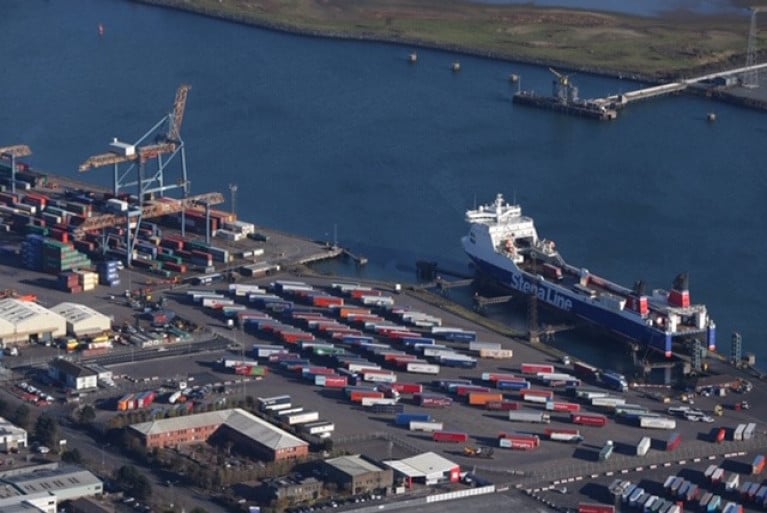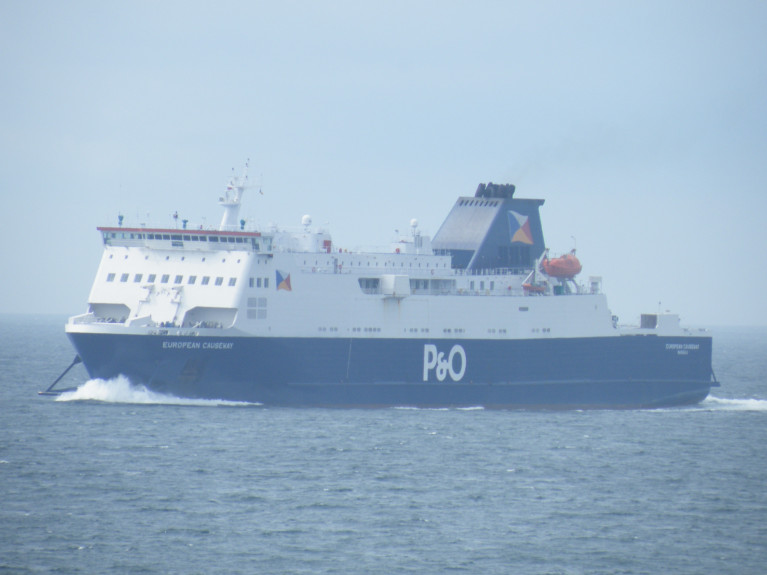Displaying items by tag: Irish Sea Border
The Minister for Foreign Affairs Simon Coveney has told Britain's Foreign Secretary that proposed legislation to change to Northern Ireland Protocol will create a whole new set of uncertainties and damage relationships.
The British government is due to publish details of proposed legislation to give ministers the power to override parts of the protocol.
The Irish Government and European Union have warned against unilateral action and urged a return to the negotiating table, but those pleas are set to be ignored.
Mr Coveney said it marks a particular low point in the UK’s approach to Brexit.
He spoke to Ms Truss by phone this morning, where she outlined her intention to publish the legislation today.
Mr Coveney said publishing legislation that would breach the UK's commitments under international law, the Brexit Withdrawal Agreement and Northern Ireland Protocol is deeply damaging to relationships on these islands and between the UK and EU.
For more RTE News reports.
Politicians from the Unionist tradition, The Irish Times writes, have responded with annoyance and dismay after a junior Sinn Féin Minister told a Stormont committee that there will be new physical border posts at Northern Ireland ports.
An “Irish Sea border is now a certainty”, the Ulster Unionist Party leader Steve Aiken said on Thursday following comments by Sinn Féin Minister Declan Kearney that border posts are to be created to deal with trade coming into Northern Ireland from Britain.
Mr Kearney told the Assembly’s Executive Office scrutiny committee that the “British government has confirmed it will urgently put in place detailed plans with the Executive, which does include the physical posts at ports of entry”.
(The Minister) Mr Kearney informed former Sinn Féin MEP Martina Anderson that the British government had signalled that “delivery on that infrastructure needs to start as soon as possible”.
“The British government has indicated that it will provide advice on the requirements and the funding to put that in place.”
Ms Anderson, in her questioning of Mr Kearney on Wednesday, indicated the posts would be at Belfast, Larne and Warrenpoint and would be designed to accommodate additional customs officers and vets, who would be dealing with livestock.
More on this Brexit development here.
Out-But-In Brexit Customs Plan Has Hallmarks of Hastily Agreed Deal
In a major change from the original Northern Ireland backstop to avoid a hard border will require a huge leap into the unknown. It is the area of customs.
In practical terms, The Irish Times reports, this is the most complex part of the proposed Brexit plan to manage, with much of the small print yet to be written.
By dropping the idea of a EU-UK customs territory in the original plan, London and Brussels have agreed to allow Northern Ireland to leave the EU customs union while still applying the bloc’s customs rules there.
In an effort to maintain an open Irish Border, the EU is outsourcing checks on goods coming on to the island – and possibly into the EU market – to the UK authorities, with EU officials entitled to be present for checks at (ferry)ports in the North, Scotland and England.
Beyond a broad line of how it would work, there is little detail on how it will be managed. It is not clear what exactly would happen to a truckload of widgets travelling from Scotland to Northern Ireland through Belfast Port on to Dublin and then further into the EU market. A similar customs proposal from the UK was dismissed last year by Brussels as unworkable.
The newspaper has more here to read.
Afloat adds today marks the fourth and final day of the British Ports Association's annual conference which for the first time was hosted by Belfast Harbour. More than 300 industry representatives from across the UK and Ireland are attending.
As previously reported on Afloat, in advance of the event the BPA discussed the UK Government's 'new Brexit Border plan'.

























































